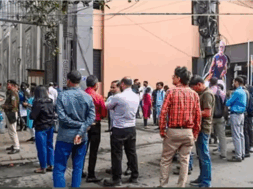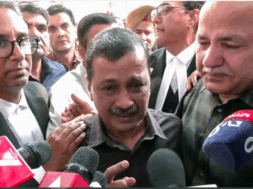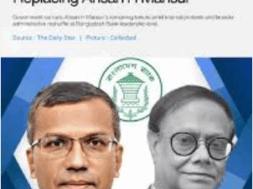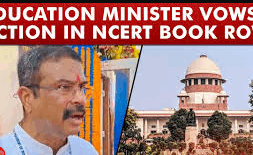
Centre Rubbishes Report of Excess Deaths in Covid Period
NEW DELHI, July 20: The Union Health Ministry has rubbished a report in a scientific paper claiming more than a million more deaths during the Covid pandemic period in 2020 and said the report was based on “untenable and unacceptable estimates.”
“It is strongly asserted that an extra mortality of about 11.9 lakh deaths reported in the Science Advances paper in 2020 over the previous year is a gross and misleading overestimate. It is noteworthy that excess mortality during the pandemic means an increase in deaths due to all causes, and cannot be equated with deaths that were directly caused by COVID-19,” the Ministry said.
In a statement issued on Saturday, the Ministry said “the paper reports results on age and sex, which are contrary to research and program data on COVID-19 in India. The paper claims that excess mortality was greater in females and in younger age groups (particularly 0-19 year old children). Data on about 5.3 lakh recorded deaths due to COVID-19 virus, as well as research data from cohorts and registries consistently shows higher mortality due to the virus in males than females (2:1) and in older age groups (several fold higher in > 60 years olds than in 0-15 year old children). These inconsistent and unexplainable results in the published paper further reduce any confidence in its claims.”
According to the Ministry, “the excess mortality reported in the Science Advances paper in 2020 over the previous year is a gross and misleading overestimate. The study is erroneous and methodology followed by the authors has critical flaws; the claims are inconsistent and unexplainable. The all-cause excess mortality in 2020 compared with the previous year in India is markedly less than the 11.9 lakh deaths reported in the Science Advances paper.’’
It added that discrepancies between the study’s findings and established COVID-19 mortality patterns further undermine its credibility. “Study fails to acknowledge India’s robust Civil Registration System (CRS), which recorded a substantial increase in death registrations (over 99%) in 2020, not solely attributable to the pandemic,” the Ministry maintained.
While the authors claim to follow standard methodology of analysing the National Family Health Survey-5 (NFHS-5), there are critical flaws in methodology. It noted that the most important flaw is that the authors have taken a subset of households included in the NFHS-5 survey between January and April 2021, compared mortality in these households in 2020 with 2019, and extrapolated the results to the entire country.
“The NFHS sample is representative of the country only when it is considered as a whole. The 23% of households included in this analysis from part of 14 States cannot be considered representative of the country. The other critical flaw is related to possible selection and reporting biases in the included sample due to the time in which these data were collected, at the peak of the COVID-19 pandemic,’‘ the Ministry said, adding that the paper is methodologically flawed and shows results that are untenable and unacceptable.
It elaborates that the paper erroneously argues for the need for such analyses claiming that the vital registration system in low and middle income countries including India is weak. This is far from being correct. The CRS in India is highly robust and captures over 99% of deaths. This reporting has constantly increased from 75% in 2015 to over 99% in 2020. Data from this system shows death registration has increased by 4.74 lakh in the year 2020 compared to 2019. There was a similar increase of 4.86 lakh and 6.90 lakh in death registration in the year 2018 and 2019 over the respective previous years. Notably, all excess deaths in a year in the CRS are not attributable to the pandemic. Excess number is also due to an increasing trend of death registration in CRS (it was 92% in 2019) and a larger population base in the succeeding year,” it said.
(Manas Dasgupta)













